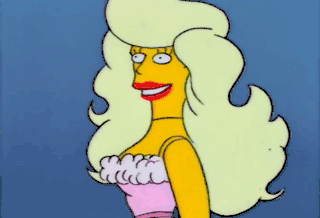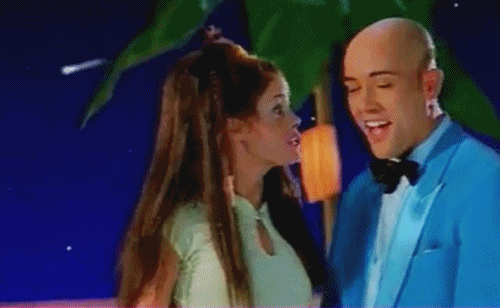StraxStrax
I'm selling these fine leather jackets
Is casting Margot Robbie as Barbie a regressive move?

It’s been 60 years since the Barbie doll was first launched by Mattel, Inc., and 32 years since her expansion into a sprawling media franchise that includes films, video games and music. Which means that Barbie has had the potential to influence four generations of children, mostly girls, since her inception. Her impact is felt most in her home of the United States, where 99% of girls between the ages of 3-10 own a Barbie doll, while her status as thebest-selling fashion doll in every major global market confirms the breadth of her dominance. Barbie’s reach has seen her transcend from a beloved toy to a cultural icon that dictates trends and influences many, for better or worse.
Yet despite her longevity and nearly 40 movies behind her, Barbara Millicent Roberts, as she’s formally known, has never been depicted in live-action before. However, that’s set to change with a new Hollywood movie announced for 2020, with Margot Robbie in the starring role and Greta Gerwig and Noah Baumbach co-writing the script. Gerwig is also poised to direct the film but nothing has been confirmed so far. Robbie’s casting has raised some eyebrows, since she embodies the blonde, thin, and white ideal that’s become synonymous with Barbie and her lack of inclusivity. Despite Mattel’s recent efforts to bring the franchise into the modern era with a progressive agenda that includes body and ethnic diversity, the casting choice appears somewhat regressive. To fully understand the ramifications, it’s necessary to consider Barbie’s past and why it’s so relevant to the upcoming film.
Historically Barbie’s legacy has been both lauded and criticised. Her strong independence as a working woman has been praised; Mattel’s genius (and allegedly stolen) idea of a doll that was a young woman and not a baby changed not only toy history but helped shape a new path for women in the 1960s. Back in 2002, The Economist observedthat, “From her early days as a teenage fashion model, Barbie has appeared as an astronaut, surgeon, Olympic athlete, downhill skier, aerobics instructor, TV news reporter, vet, rock star, doctor, army officer, air force pilot, summit diplomat, rap musician, presidential candidate (party undefined), baseball player, scuba diver, lifeguard, firefighter, engineer, dentist, and many more....When Barbie first burst into the toy shops, just as the 1960s were breaking, the doll market consisted mostly of babies, designed for girls to cradle, rock, and feed. By creating a doll with adult features, Mattel enabled girls to become anything they want.”
Barbie’s contribution to women’s liberation can’t be denied, but just like some of her peers at 60 years old, her values have begun to look a little dated. For women today the professional glass ceiling may be just short of shattered, but regarding physical appearance, we have been just as boxed in as Barbie herself, ironically, to a set of constructs that she helped define. If Barbie’s legacy includes independence then it must also carry thin-idealisation and an impossible standard of beauty that has predominantly favoured whiteness and perfectly symmetrical features while being catered to the male gaze. Down to the details Barbie is the epitome of perfection – she has no cellulite, scars, wrinkles, or body hair, her breasts are perfectly perky and her waist thin, her hair is unrealistically long, and her large, almond eyes, perfect nose, and big lips are accentuated thanks to unblemished skin and permanent make-up. Mattel’s wonderdoll helped liberate girls from a lifetime of domestic servitude, only to shackle women via physical expectations that are literally unattainable. A 1996 study titled ‘Ken and Barbie at life size’ sought to measure with scientific accuracy how representative Mattel’s dolls are of a young adult population comprised mostly of Anglo-Australians. Barbie’s body shape was deemed to be probable in less than 1 in 100,000, while Ken’s was a more realistic 1 in 50.
Many other studies have detailed the potentially damaging impact of thin dolls such as Barbie. The widely-circulated notion that if Barbie was a real person she would be too thin to menstruate was hypothesised in the 1992 study ‘Could mannequins menstruate?’ A University of Sussex study found that early exposure to dolls with unrealistically thin bodies led to lower body esteem and a greater desire for a thinner body shape and that even if the dolls lost their aspirational value as girls grew older, the damaged body image may remain. A similar study conducted by Flinders University in Melbourne found that exposure to Barbie led to higher thin-ideal internalisation but did not immediately result in lower body esteem. Additionally, a Dutch study examined the correlation between playing with thin dolls and food intake, finding that girls who played with average-sized dolls ate more than those who played with thin dolls.
Sixty years into Barbie’s history there’s no denying the potential negative impact that her physical image can bring to young girls, and subsequently teenagers and young adults. It seems Mattel finally understands this since in 2016 Barbie was given a contemporary makeover with three new body types, including tall, petite, and curvy, as well as an expansion into other ethnicities and a focus on issues including confidence, education, and body image. President and Chief Operating Officer Richard dikkson explained that the goal was to move the onus, “from what she looked like to what she represents.” It’s admirable that, although considerably late, Mattel has acted on these issues in a positive and progressive way, but their approach is far from perfect. Just as the original Barbie is conventionally beautiful and perfectly coiffed, so too are the new Barbies. The message that Mattel is sending is that an acceptance of more body types and ethnicities is ok, as long as women are attractive and perfectly complected.
And while this new direction for Mattel seems reparative to some extent, it would be remiss not to acknowledge that part of their intention is seemingly fiscal. After the first part of the decade saw Barbie’s popularity waning with eight consecutive quarters in sales decline, at one point reaching a 14% loss globally, the “real-world makeover” bolstered sales, raising Barbie’s gross up 7% overall in the first quarter of this year, while the brand ended last year with the highest sales in five years.
Mattel’s preternatural approach to beauty is evidenced in the new Role Models campaign that was released on International Women’s Day, in celebration of Barbie’s 60th Anniversary. Twenty women from around the world were honoured with a Barbie in their likeness, including Frida Kahlo, model Adwoa Aboah, tennis player Naomi Osaka, and director Ava Duvernay, among others. The accompanying slogan—“Imagining she can be anything is just the beginning. Actually seeing that she can makes all the difference”—seeks to inspire but the dolls tell a different story. Every single one is wearing make-up (even if it looks natural for Barbie’s style) while they appear to be slimmed down from their real-world counterparts and made to seem much younger. The Barbification of these accomplished women undermines the campaign and ultimately suggests that it doesn’t matter how successful a woman is, she will still be judged by her looks.

Nevertheless, Mattel may be attempting a new direction but the casting of Margot Robbie as the first live action incarnation of Barbie is paradoxical to it. Just like the blonde, thin, and white ideal, Robbie too has symmetrical features, bright eyes, clear skin, and a pearly smile accentuated by luscious lips. She’s a talented actress in her own right, but she also looks like a model. By casting her Mattel is arguably perpetuating the traditional narrative of ideal beauty that it helped define, this time through a medium that is likely to reach a much wider, older, and diverse audience than Barbie’s usual demographic of 3-12 year old girls.
What’s more, the film’s chequered production history reveals a more realistic depiction of Barbie that was ultimately dismissed. Amy Schumer was originally set to play the doll before dropping out due to scheduling conflicts, with Anne Hathaway chosen in her place. The project went quiet for a while before Robbie was announced for the role, while Mattel’s newly launched film division—aimed at promoting their various brands—would be partnering with Warner Bros. on the film’s release. Further, the film’s questionable premise revolves around an imperfect Barbie that gets kicked out of Barbieland for not being perfect enough, thus landing herself in a real-world adventure. Currently the film’s IMDb page still lists this original plot, which was first announced when Schumer was linked to the project. It’s problematic that Robbie should portray this “imperfect” doll as it is, but especially so if the same role once belonged to Schumer.
Margot Robbie’s comments about the upcoming role also don’t sit well with the situation: “Playing with Barbie promotes confidence, curiosity and communication throughout a child’s journey to self-discovery. Over the brand’s almost 60 years, Barbie has empowered kids to imagine themselves in aspirational roles from a princess to president. I’m so honoured to take on this role and produce a film that I believe will have a tremendously positive impact on children and audiences worldwide. I can’t imagine better partners than Warner Bros. and Mattel to bring this film to the big screen.” She appears to be overcompensating for the obvious criticism that’s befallen the Barbie franchise, and while it’s understandable she would discuss her work in a positive tone, it would have been more authentic to address Barbie’s past shortcomings and new direction. Instead, her comment inflates Barbie’s contribution to children’s wellbeing, despite well-documented research that suggests otherwise.
Barbie’s first live-action venture should be an exciting prospect for Mattel to showcase just how forward-thinking their brand really is, if that is the case. But since their Barbie won’t represent a contemporary, open-minded ideal of beauty, we can only hope that the story will offer a meaningful look at her world, which Gerwig and Baumbach could deliver in a clever, satirical way. However, Mattel Films’ agenda is brand exposure so it seems unlikely that critical commentary against Barbie’s past failings will be up for discussion. Mattel may be projecting an image of female empowerment and inclusivity, but unless they commit to their newfangled morals with conviction, Barbie’s “real-world makeover” will prove to be nothing more than an empty sell. Perhaps only then will Mattel learn that what she represents is inextricably tied to how she looks.





